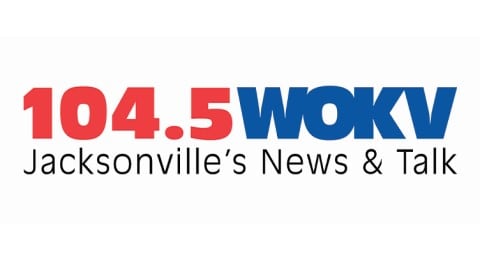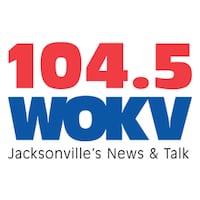NEW ORLEANS — New Orleans has a big place in Super Bowl history. Sunday’s contest at the Superdome marks the 11th time the Big Easy has hosted the NFL’s marquee game. That ties Miami for the most Super Bowls hosted.
The first three Super Bowl games in New Orleans were played at Tulane Stadium, while the others have been contested at the Superdome. Both competitors in Super Bowl LIX -- Kansas City and Philadelphia -- have played for the Vince Lombardi Trophy in New Orleans.
Here is a look at the 10 Super Bowl games that have been played in the Crescent City.
Super Bowl IV
Tulane Stadium hosted New Orleans’ first Super Bowl. On Jan. 11, 1970, the underdog Kansas City Chiefs stunned the Minnesota Vikings 23-7 in the final game before the AFL-NFL merger.
The Chiefs rolled out to a 16-0 lead by halftime, and Kansas City’s defense recovered two fumbles and intercepted three passes.
Kansas City took command when coach Hank Stram called a “65 Toss Power Trap” and Mike Garrett broke free for a 5-yard touchdown.
Stram, who was microphones by NFL Films for the game, could not contain his glee.
“Was that there, boys?” Stram yelled. “I tell ya that thing was there, yes sir boys!”
"65 Toss Power Trap"
— Kevin Gallagher (@KevG163) January 11, 2025
Super Bowl IV. Hank Stram, #Chiefs
January 11, 1970 pic.twitter.com/NgEG7boDs3
Super Bowl VI
The Dallas Cowboys and coach Tom Landry, frustrated so many times in title games over the past six seasons, finally hit pay dirt on Jan. 16, 1972, at chilly Tulane Stadium.
The temperature at kickoff was 39 degrees -- the coldest for an outdoor venue at the Super Bowl -- but Dallas was hot all day.
The Cowboys stifled the Miami Dolphins 24-3 with a balanced attack. Duane Thomas rushed for 95 yards and a touchdown as Dallas piled up 252 yards on the ground, and quarterback Roger Staubach completed 12 of 19 passes for 119 yards and two touchdown passes.
The Dallas defense did the rest, as the Dolphins became the first team held without a touchdown in a Super Bowl. Miami was limited to 185 yards of total offense, Chuck Howley returned a Bob Griese interception 41 yards, and Bob Lilly dumped Griese for a Super Bowl-record 29-yard loss on a sack.
#DallasCowboys icon Bob Lilly sacks the Dolphins' Bob Griese for an unforgettable 29-yard loss on the final play of the first quarter of Super Bowl VI — the largest tackle-for-loss in #SuperBowl history.
— Kevin Gallagher (@KevG163) January 16, 2025
Legends Ray Scott and Pat Summerall on the call for CBS.
January 16, 1972 pic.twitter.com/1ihKjZQIDr
Super Bowl IX
The last professional football game ever played at Tulane Stadium was on Jan. 12, 1975. Pittsburgh’s Franco Harris was named the MVP after rushing for a Super Bowl-record 158 yards, but the real stars in a 16-6 victory was the Steelers’ defense.
The “Steel Curtain” forced two fumbles and intercepted Minnesota Vikings quarterback Fran Tarkenton three times. Fittingly, the game’s first points were generated by a safety in the second quarter, when Tarkenton had to cover a loose football in the end zone.
The victory was a coming-out party for the Steelers and gave longtime owner Art Rooney his first Super Bowl title. The Steelers would win three more Super Bowls over the next five seasons.
Steelers Super Bowl IX defensive montage
— Steel City Star (@steelcitystar) January 13, 2025
Played 50 years ago today pic.twitter.com/0vNflPen93
Super Bowl XII
The first Super Bowl played in a dome took place on Jan. 15, 1978, at the Superdome. It also was the first time a Super Bowl was broadcast in prime time in the Eastern time zone.
The Dallas Cowboys went 2-0 in New Orleans with a dominating 27-10 victory against the Denver Broncos.
Defenders Harvey Martin (two sacks) and Randy White (one sack) were named co-MVPs. Dallas also intercepted four passes and held a 13-0 lead by halftime.
Roger Staubach threw for 183 yards and a touchdown, and Robert Newhouse nailed down the victory with a 29-yard halfback pass to Golden Richards in the fourth quarter.
The first of six non-quarterback touchdown passes in #SuperBowl history:#DallasCowboys fullback Robert Newhouse arcs a 29-yard fourth quarter touchdown pass to Golden Richards to finish off the Broncos in Super Bowl XII.
— Kevin Gallagher (@KevG163) January 15, 2025
January 15, 1978 pic.twitter.com/1I5JHysky6
Super Bowl XV
The Oakland Raiders became the first wild-card team to win a Super Bowl, stopping the Philadelphia Eagles 27-10 on Jan. 25, 1981.
MVP Jim Plunkett passed for 261 yards and three touchdowns, while Raiders linebacker Rod Martin intercepted Ron Jaworski three times.
Plunkett’s 80-yard touchdown pass to halfback Kenny King was a Super Bowl record and gave the Raiders a 14-0 lead that proved to be the winning score. Cliff Branch caught a pair of touchdown passes for Oakland.
TWO KINGS#Raiders voice Bill King calls Jim Plunkett's 80-yard touchdown pass to halfback Kenny King down the left side for a 14-0 first quarter lead in Super Bowl XV.
— Kevin Gallagher (@KevG163) January 25, 2025
Dick Enberg's NBC call follows.
It proves to be the game-winning score and would stand as the longest play… pic.twitter.com/WHmp7btIfi
Super Bowl XX
Strutting into the Big Easy with their “Super Bowl Shuffle” video, the Chicago Bears backed up their cocky attitude with a 46-10 victory against the New England Patriots on Jan. 26, 1986.
“Da Bears” were nearly perfect during the 1985 season, and after an early turnover allowed New England to take a 3-0 lead at the Superdome, Chicago took control.
The Bears’ “46 defense” set or tied Super Bowl records for sacks (seven), margin of victory (36) and fewest rushing yards allowed (seven). Chicago recovered four fumbles and intercepted two passes. The defense gave Chicago its final two points -- fittingly, making the score 46-10 -- when Henry Waechter dumped quarterback Steve Grogan for a safety late in the fourth quarter.
The game also featured a 1-yard touchdown run by defensive lineman William “The Refrigerator” Perry in the third quarter that gave Chicago a 44-3 lead.
January 26, 1986
— Old Time Football 🏈 (@Ol_TimeFootball) January 26, 2025
Super Bowl XX#Bears #Patriots
Chicago D holds New England to negative yardage into the 3rd quarter.@Richard_Dent95 MVP 2 FF
Dan Hampton
46-10 #DaBears pic.twitter.com/E78mw3Qzgp
Super Bowl XXIV
The San Francisco 49ers and Joe Montana rolled to the largest margin of victory in Super Bowl history, scoring a 55-10 victory against the Denver Broncos on Jan. 28, 1990.
Montana was the game’s MVP at the Superdome and lit up the scoreboard with five touchdown passes. He completed 22 of 29 passes for 297 yards to earn MVP honors for the third time.
The 49ers led 27-3 at the half.
Roger Craig rushed for 69 yards to lead a San Francisco ground game that collected 144 yards. Broncos quarterback John Elway was sacked four times, intercepted twice and lost a fumble.
🐐GOAT SHOW🐐#49ers Joe Montana and Jerry Rice in Super Bowl XXIV
— Kevin Gallagher (@KevG163) January 28, 2025
Montana becomes the then career leader in Super Bowl TD passes with 10
Rice sets a Super Bowl single-game record with three receiving TDs, a record he would later tie in Super Bowl XXIX. #FTTB
January 28, 1990 pic.twitter.com/40l7W2BFOM
Super Bowl XXXI
The Green Bay Packers defeated the New England Patriots in the Superdome 35-21, earning their third overall Super Bowl title and their first since Super Bowl II.
The game, played on Jan. 26, 1997, was also the only Super Bowl title won by Packers quarterback Brett Favre.
Favre threw for 246 yards and two touchdowns, but game MVP Desmond Howard had an electrifying 99-kickoff return for a score that set a Super Bowl record. New England had closed to within 27-21 on an 18-yard touchdown run by Curtis Martin, but Howard’s return swung the momentum back to Green Bay.
New England quarterback Drew Bledsoe threw a pair of touchdowns but also had a then-Super Bowl record four interceptions.
#Packers return stud Desmond Howard takes one 99 yards to the house in Super Bowl XXXI.
— Kevin Gallagher (@KevG163) January 26, 2025
The fourth kickoff return — and at that time the longest — in Super Bowl history.
Howard becomes the only exclusive kick/punt returner to be named Super Bowl MVP.
January 26, 1997 pic.twitter.com/sGgZ7Nucml
Super Bowl XXXVI
Tom Brady and the New England Patriots won the first of their six Super Bowl titles, stunning the St. Louis Rams 20-17 at the Superdome.
It was the first Super Bowl to be played in February; after the Sept. 11, 2001, attacks, the NFL postponed a week of regular-season games and moved the Super Bowl to Feb. 3, 2002.
The Rams were a 14-point favorite but New England led 17-3 heading into the fourth quarter. But Kurt Warner ran 2 yards for a touchdown and threw a 26-yard scoring strike to Ricky Proehl to tie the game.
The Patriots got the ball back with 1:30 remaining in regulation and no timeouts, but Brady coolly led New England on a drive that resulted in Adam Vinatieri’s 48-yard field goal as time expired.
It was the first of Brady’s five Super Bowl MVP awards.
SUPER BOWL XXXVI
— Kevin Gallagher (@KevG163) February 4, 2025
The #Patriots' Game-Winning Drive
After the #Rams tie the game with only 1:30 left, John Madden at first believes that with a tie score deep in their own territory, the #NEPats should go conservative and play for overtime.
He then admits that he was wrong and… pic.twitter.com/URtRIzNIre
Super Bowl XLVII
The most recent Super Bowl in New Orleans before Sunday’s game was held on Feb. 3, 2012. What was touted as the Harbaugh Bowl -- John Harbaugh’s Baltimore Ravens against Jim Harbaugh’s San Francisco 49ers -- would be known as the Blackout Bowl.
The game was delayed for 34 minutes early in the second half after there was a power outage in the Superdome.
The second half began in raucous fashion when Jacoby Jones returned the second-half kickoff 108 yards for a touchdown to give Baltimore a 28-6 lead.
Then, 1:38 into the third quarter, half of the lights at the Superdome went out.
Once power was restored, the 49ers chopped the Ravens’ lead to two points when Colin Kaepernick scored on a 15-yard run with 9:57 left in the game. The two-point conversion failed, so Baltimore still led 31-29. The Ravens kicked a field goal with 4:19 to play and then took an intentional safety in the final seconds to win 34-31.
A 15-page report that investigated the blackout was released a month after the game.
“The switchgears installed by Entergy in preparation for the Super Bowl contained a device called a relay that was supposed to shut down the power supply if either feed reached a certain amperage,” Sports Illustrated reported in 2015. “The problem: The factory settings were too low.”
“It was the Super Bowl where the lights went off,” John Harbaugh said, according to ESPN. “The night that the lights went out in New Orleans will be remembered forever.”
"THE BLACKOUT BOWL"
— Kevin Gallagher (@KevG163) February 3, 2025
With 13:22 remaining in the third quarter of #SuperBowl XLVII, a partial power outage in the Superdome suspends play between the #Ravens and #49ers for 34 minutes.
February 3, 2013 pic.twitter.com/jjAeoQ8IOT
© 2025 Cox Media Group









